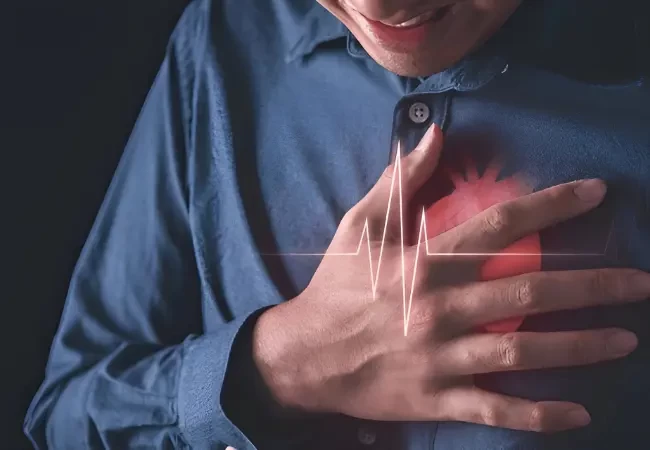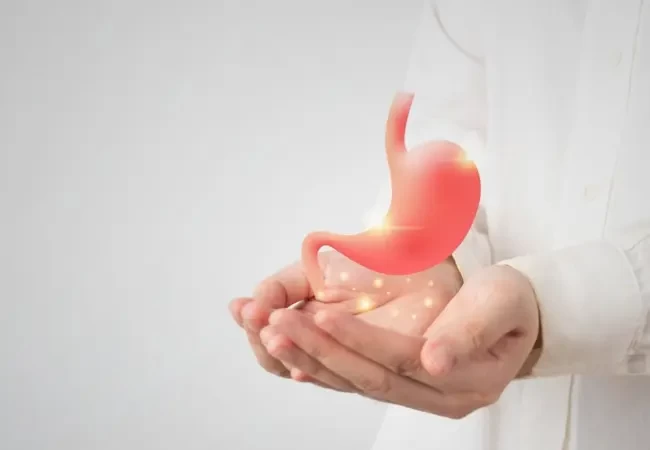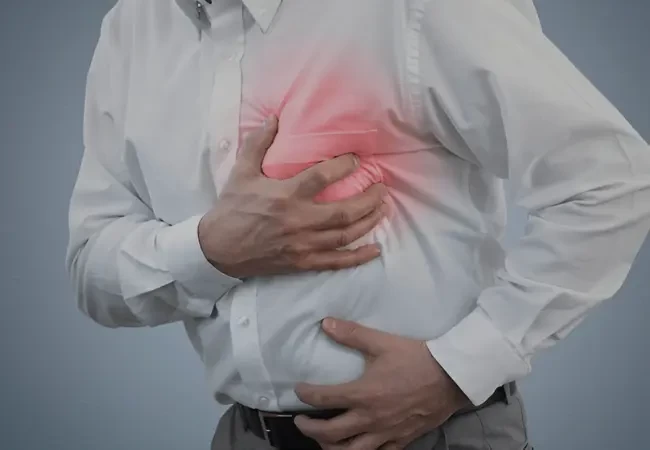Hypertensive heart disease is the condition when heart problems happen because of high blood pressure. When blood pressure is high, it puts extra strain on the heart which can cause different heart issues. This condition is serious and can lead to problems like coronary artery disease (a heart disease), heart failure (when the heart can't pump well) and thickening of the heart muscle. It can even cause sudden heart problems that can lead to death. About 25% of heart failure cases are related to hypertensive heart disease. In this blog, you will know about what causes this disease, how to recognize its symptoms, how doctors diagnose it and what treatments are available. So keep on reading to know more about it.
Hypertensive heart disease or high blood pressure heart disease is a term for different heart problems that happen because of long term high blood pressure. When the heart has to work too hard for a long time, it can get tired and hurt which lead to various issues such as heart failure, Coronary Artery Disease (CAD) and Arrhythmias.
High blood pressure makes it harder for your heart to pump blood. When cholesterol builds up in your blood vessels or part of your heart grows larger because of high blood pressure, you can have these issues:
The symptoms of hypertensive heart disease can be different based on how serious the problem is. But some common signs to look out for are:
Chest Pain (Angina)
A feeling of pressure or tightness in the chest usually happening when you are active or stressed.
Shortness of Breath
Having trouble breathing especially when moving around or lying down.
Palpitations
Feeling your heart beating fast or irregularly.
Fatigue
Feeling very tired and low on energy even after doing little.
Edema
Swelling in the legs, ankles or feet because of extra fluid.
Dizziness or Fainting Spells
Feeling lightheaded or sometimes briefly losing consciousness.
Hypertensive heart disease happens because of high blood pressure over time. Many things can lead to high blood pressure thus the causes of hypertensive heart disease are as follows.
Family History: If your parents or siblings had high blood pressure or heart disease, you might be at higher risk too.
Unhealthy Eating: Eating lots of salt, unhealthy fats and cholesterol can make your blood pressure go up.
Not Moving Enough: If you do not exercise regularly, it can lead to weight gain and higher blood pressure.
Being Overweight: Carrying extra weight makes your heart work harder which can raise your blood pressure.
Smoking: Smoking is bad for your blood vessels and can increase how fast your heart beats which raise blood pressure.
Drinking Too Much Alcohol: Drinking a lot of alcohol can lead to higher blood pressure and harm your heart.
Chronic Stress: Being stressed for a long time can also cause high blood pressure.
What are the Complications of Hypertensive Heart Disease?
Complications of hypertensive heart disease are as follows:
Ischemic heart disease
High blood pressure can make people more likely to have health problems like:
One in three adults in America has high blood pressure but only half of those are able to manage it well. High blood pressure heart disease are the leading cause of sickness and death related to this condition.
You have a chance of getting heart problems from high blood pressure if you:
Do not exercise
The good thing is that you can take care of high blood pressure and its effects on your heart by making some changes in your life, taking medicine and sometimes having medical procedures. Here is how the management and treatment of hypertensive heart disease is done:
Changes in Diet
Eat Less Salt: Try to have less than 2,300 mg of sodium each day.
Eat Healthy Foods: Include fruits, vegetables, whole grains and lean meats in your meals.
Drink Less Alcohol: Follow safe drinking guidelines.
Stay Active: Exercise regularly like walking briskly, swimming or biking for at least 150 minutes each week.
Keep a Healthy Weight: Work on losing or maintaining your weight by eating well and exercising.
Quit Smoking: Get help to stop smoking like talking to someone or using patches or medicine.
Medicines are very important for treating heart problems caused by high blood pressure. Your doctor might give you some medicine like:
Antihypertensives: Help lower blood pressure.
Diuretics: Help the body get rid of extra water.
Beta-Blockers: Help slow down the heart and lower blood pressure.
ACE Inhibitors: Help widen blood vessels to lower blood pressure.
Calcium Channel Blockers: Keep calcium from getting into heart cells, which helps lower heart rate and blood pressure.
Medical Procedures
If changing your habits and taking medicine does not help enough, you might need to have a medical procedure. This can include:
Coronary Angioplasty: A procedure to open blocked heart arteries.
Coronary Artery Bypass Surgery: A surgery to go around blocked arteries.
Heart Valve Repair or Replacement: Fixing or replacing damaged heart valves.
Implantable Devices: Devices like pacemakers or defibrillators to help control heart rhythms.
Hypertensive heart disease is a serious condition that needs careful management. Knowing its signs, causes, and treatment options can help you take care of your heart. You can go to EMC hospital which is the top heart hospital in Kochi. We provide many services to help with heart problems. Our team of heart specialists in Kerala gives complete care for patients of all ages including special care for children with heart issues.


Discover the truth behind common plastic surgery myths. Learn what's real, what's outdated, and how modern procedures truly work.

A step-by-step overview of GI surgery, covering what to do before surgery, what happens in the OR, and how to ensure a strong recovery.

Learn about cancer, its early signs, and prevention tips to lower your risk. Early detection saves lives—stay informed, take proactive steps, and protect your health.

Discover why a skilled pediatrician is essential for your child's growth, development, and overall well-being, from infancy through adolescence.

Discover how dermatology can help tackle acne, slow aging, and treat various skin conditions for healthier, more radiant skin.

Discover common childhood allergies, their symptoms, and management tips. Stay informed to keep your child safe and healthy.

Your liver plays a vital role in metabolism, digestion, immunity, and detoxification. Learn how liver health affects your body and ways to maintain its function.

Strong bones support your body and protect your health. Discover simple diet, exercise, and lifestyle tips to maintain bone strength at any age.

Discover the symptoms, causes, and treatment of hypertensive heart disease. Learn how high blood pressure affects your heart and when to seek medical care.

Learn about chest pain symptoms, causes, and treatments. Know when to seek medical help for a healthier heart.